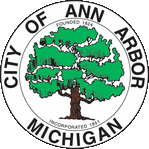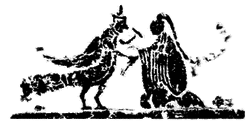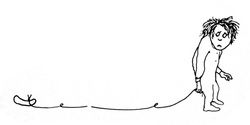 This is a great year to be a Chinese medicine practitioner in Ann Arbor! Besides the Society for Acupuncture Research (SAR) conference to be held April, 2013, there will be no less than four speakers coming to the University of Michigan to give talks about Chinese Medicine! The first is Dr. Pierce Salguero of the Pennsylvania State University, giving a talk this coming Thursday (10/4) entitled “Buddhist Medicine in China: Disease, Healing, and the Body in Cross-cultural Translation”. For a complete list of speakers and dates, please download this PDF.
0 Comments
 I have been reading "Doctors East Doctors West" (Norton, 1946) by Dr. Edward H. Hume, an account of his experience setting up the Xiangya (Hsiangya) Hospital and Medical College in Hunan during the tumultuous early decades of the 20th century. In the book there are many accounts of his interactions with the local Chinese medical physicians, whose skills he had many opportunities to observe and greatly respected, and in addition there is a brief account of his introduction to《伤寒论》, in which he compared Zhang Zhongjing's knowledge of typhoid fever to that of his teacher William Osler. I'd like to share his review of what he translated as A Treatise on Typhoid Fever by Chang Chung-ching here, and ask if anybody knows of an earlier English-language review of the text. (Note that the event described below occurred in 1906-07) - - - - - - - - - - Begin Madame T'ao brought her daughter over to the hospital on a special stretcher that had been improvised. "We want to put the girl in your care. All the best Chinese doctors in Changsha have prescribed for her, yet she does not get better." The mother realized how seriously ill the girl was and had decided to ask me to treat her in the hospital. She was ill indeed. Typhoid fever, with a high temperature and delirium--a very gloomy outlook. I gave each of the others in the immediate family a shot of typhoid vaccine, then went ahead with the care of the eighteen-year-old patient, using cooling baths as Osler had taught us. I thought it was a thoroughly modern procedure. Madame T'ao asked me the next day whether I had ever heard of Dr. Chang, one of the most renowned of China's old physicians and at one time mayor of Changsha. "Your use of enemas and of cooling baths reminds me of what my father used to tell me of this celebrated physician's way of treatment. Tomorrow I will bring over, for you to see, one of the volumes of the remarkable essays this old-time physician wrote." The following morning Madame T'ao brought over the first volume of A Treatise on Typhoid Fever, by Chang Chung-ching, published about A.D. 196. It was an astounding discovery to find such a book in Changsha. Here were accurate descriptions of the onset of the fever: chilliness and headache; loss of appetite and nosebleed; temperature rising higher each afternoon. Osler could scarcely have given a clearer picture. More important still, old Dr. Chang had written, "Never use drastic purgatives in this fever. If necessary, use enemas of pig's bile, mixed with a little vinegar, and inserted with a slender bamboo tube. If the fever is high, use cooling baths; they will be found to give strength to the patient and reduce his delirium." Madame T'ao told me more about this historic book, written in Changsha, where our hospital was supposed to be setting the pace in scientific diagnosis and treatment. Her father, who was always reading biographies, especially of the eminent medical men of China, was particularly devoted to this celebrated physician and considered these volumes the first rational treatise on treatment ever written in China. He thought one reason for the fame of the book was its classic style, something all Chinese literati admired, and insisted that this Treatise on Typhoid Fever was in every sense the medical equivalent of The Four Books, which formed the foundation of the Confucian classical literature. In her father's library, she said were several editions, the best being one published during the Sung Dynasty. It was in fourteen volumes and contained two hundred and ninety-seven outlines of treatment and over a hundred prescriptions. Dr. Chang, who received his literary degree during the reign of the Emperor Ling Ti of the Han Dynasty, became interested in typhoid fever when he saw that most of the deaths in his native village over a period of ten years were from this disease. In that time the deaths numbered two-thirds of the two hundred inhabitants. One epidemic so impressed him by its severity that he gave himself over to the study of the causes and symptoms, the treatment and prevention of the disease. A Treatise on Typhoid Fever was the result. Repeated editions of Chang's great work had been issued through the centuries, Madame T'ao told me, and with many commentaries. One of the first of these was by Dr. Wang Shu-ho, China's great authority on the pulse, who lived a century or so after Dr. Chang. From then on, I found that every intelligent Chinese knew about this book. I soon concluded that far more people in China knew about Dr. Chang and his work on typhoid fever than did my countrymen about William Osler and other physicians who had described this fever. During the next few days, as I cared for Madame T'ao's daughter, I felt as if I were listening to the voices of two counselors. Both of them seemed to warn me about symptoms that might appear toward the end of the second week, or a sign that might be peculiarly unfavorable. These two distinguished physicians lived seventeen hundred years apart and in opposite hemispheres; yet each observed something that put him ahead of most of his contemporaries. It was fascinating to discover how many similarities there were between the two. Both emphasized the prime importance of diagnosis; both were bedside clinicians, experienced in interpreting symptoms; both were different from their contemporaries in cautioning against excessive medication and in recommending hydrotherapy. How near together these two great leaders were, though continents and centuries apart! - - - - - - - - - - - - - - - - END  I had heard the story of Bian Que (a famous healer in ancient Chinese history) and his not-so-famous brothers several times in oral form, and always wanted to see the original. Recently while doing a little light reading (Science & Civilization in China, Vol. VI:6) I came across this translation of the original story, which first appeared in the Warring States period text《鹖冠子》. Note that Needham uses the Yale romanization of 扁鹊 - Pien Chhüeh Phang Hsüan said to the king of Cho-hsiang, ‘Have you not heard that Duke Wên of Wei asked the great physician, Pien Chhüeh , “of your three brothers, which is the best physician?” Pien Chhüeh answered “The eldest is the best, then the second, and I am the least worthy of the three.” Duke Wên said, “Might I hear about this?” Pien Chhüeh replied, “My eldest brother, in dealing with diseases, is attentive to the spirit (shên). Before [any symptoms] have formed, he has already got rid of it. Thus his fame has never reached beyond our own clan. My next brother treats disease when its signs are most subtle, so his name is unknown beyond our own village. As for myself, I use stone needles on the blood vessels, prescribe strong drugs, and fortify the skin and the flesh. Thus my name has become known among all the feudal lords.” ’ Here is the translated passage in (traditional) Chinese, copied from the Chinese Text Project page linked above: 煖曰:「王獨不聞魏文王之問扁鵲耶?曰:『子昆弟三人其孰最善為醫?』扁鵲曰:『長兄最善,中兄次之,扁鵲最為下。』魏文侯曰:『可得聞邪?』扁鵲曰:『長兄於病視神,未有形而除之,故名不出於家。中兄治病,其在毫毛,故名不出於閭。若扁鵲者,鑱血脈,投毒藥,副肌膚,閒而名出聞於諸侯。』 A few thoughts:
"The students are mostly from China’s rapidly expanding middle class and can afford to pay full tuition, a godsend for universities that have faced sharp budget cuts in recent years. But what seems at first glance a boon for colleges and students alike is, on closer inspection, a tricky fit for both."
"这些学生绝大多数来自中国迅速壮大的中产阶级,有能力支付全额学费,对于近年来面临预算削减的高校来说,这真是从天而降的礼物。不过,虽然乍看之下这对高校和学生都有好处,仔细观察起来,却是对双方都复杂和棘手的事。" Written by Tom Bartlett and Karin Fischer Translated by: ?? http://cn.nytimes.com/article/education/2012/06/27/c27conundrum/zh-cn/ Thoughts:
 HOT DOG I have a hot dog for a pet, The only kind my folks would let Me get. He does smell sort of bad And yet, He absolutely never gets The sofa wet. We have a butcher for a vet, The strangest vet you ever met. Guess we're the weirdest family yet, To have a hot dog for a pet. 热狗 我的宠物是热狗, 爸妈只准我养 这种狗。 闻起来确实有点臭, 但绝不会尿得沙发 湿透透。 我们的兽医是个屠夫, 没有比他便怪的人物。 说到怪还是我们家最奇怪, 竟然养热狗当宠物。 Poem by Shel Silverstein Translation by 鄭小芸 Thoughts:
|
AuthorPractitioner, Translator, Teacher Archives
March 2021
Categories |
 RSS Feed
RSS Feed